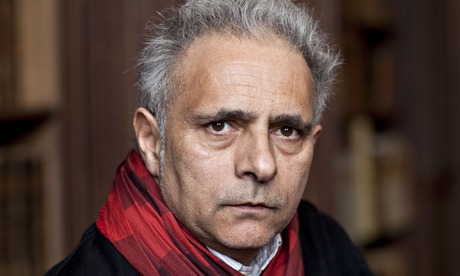One person in particular asked, again flabbergasted, about my lack of faith in innate talent, in a very articulate manner that warranted a good response. I'm posting my response here partly because it involves something that can be construed as writing advice. I'll elaborate on the opening of veins in the future, as it has to do with some famous advice and how I've interpreted it as an artist.
For now, we'll talk more about writerly (not actually a word, but it should be) education. Bear in mind, when we discuss talent versus uselessness, we're talking about people who want to be writers. They read a lot, they study the craft, they dream about being a writer. If there are innate qualities that drive people into certain interests, like for instance intellect, they have already taken action, pointing the individual towards certain passions and roads in life. These are the kinds of people who study Creative Writing at university, and they are whom Hanif Kureshi was criticising.
Response begins:
I'm specifically talking about Hanif's attitude as an educator. For instance, I taught guitar to put myself through my MFA. I've had ham-handed students who don't take naturally to the instrument, but it's my job to believe in them and treat them accordingly. They'd have a difficult road if they wanted to be truly excellent, but that shouldn't stop them.
As for intellectual abilities, which include the artistic, I don't believe in innate talent at all, and neither do conscientious modern neurologists or psychologists, but I don't want to write an essay here about neuroplasticity. A great starting point, fascinating for many reasons beyond our purposes here, is The Shallows by Nicholas Carr. I'll summarise one pertinent fact: the only factor still being watched as a possible determinant of innate intellect is called "working memory", but neuroscience has recently entered a new phase. It isn't right to make assertions when we understand so little, and good scientists are keeping their mouths shut and their eyes opened. That's off topic, but I find it interesting. And I don't want to get drawn into a debate about talent as a neurological or sociological construct. I'd enjoy it in person, but not on a comments page.
It's easy to take things wrong on comments pages so let me add that I believe your point is a valid one in spite of my disagreeing. The only thing I take issue with, again, is that an educator like Hanif has labelled his students as talented or not talented. Regardless of anyone's opinions about talent, that's a bad attitude for a teacher. A teacher should be honest about the hardships to come. I've told people that they didn't have "talented fingers", but I've also said that having to try harder to hit each chord may have benefits later down the road, as they're learning to pay close attention to their fingers. The students with "talented fingers" usually tended to jump ahead, get a song up to a passable standard and want to move on. My job was to temper their enthusiasm and turn them towards useful directions.
Every student is an individual and a good teacher understands, acknowledges and deals with whatever individual issues that person may have.
Here's a good example. Steve Erickson said to me that I was a natural storyteller, and that would be my biggest problem. What the smeg did that mean? So I had talent, and that was going to screw me up? It made no sense, and I didn't know what to do about it. Later down the road, I looked at the huge pile I'd written. (I'm really, really fast when I want to be. Stephen King is less fast.) Upon reflection, I'd jumped the gun on many a story, written something technically decent but ultimately soulless. I had themes. I'm only interested in fiction with themes, so the stories didn't lack "political purpose" in the Orwellian sense. The problem was regarding the story's depth. I had to, as Damon Knight once put it to a Clarion student, "learn to sit at the keyboard and open a vein."
Message ends. A further note:
The reason it’s perceived that most students of creative writing programs fail is that we set the marker for success so high. We do not expect everyone who studies physics to become a physicist. I’d wager around 1/1000 will, and yet the degree serves its purpose, as those who study it will use the knowledge, or at least their experience of having been to university, in later life. Those who become physicists are the ones who really love physics, not the ones who aren't too dumb. Of the people on my MFA, I’m a writer with an agent and publications under my belt, my fiancé, Ruth is an excellent writer finishing up her first novel, two are editors, one is a web designer for publishing companies, one works in advertising, and the rest I didn’t care to keep in touch with. That seems like a good hit rate to me.
Here's another pointless picture for pinterest, alliteration unintentional. It's not totally pointless, though, as it will be my last words to Hanif, and anyone who thinks Creative Writing programs are "useless". Much as I'd rather not say such things over the internet, I doubt I'll have the chance to say this in person to would-be authors who don't believe in the craft. Something tells me I won't be meeting them at conventions. Plus, readers, if success ever turns me into enough of a pretentious douchebag to forget I had to work for it, and that I'm not just more talented than any reader who has aspirations of publishing a book one day, please, please beat the crap out of me and paint this on the wall with my blood:

 There.
There.